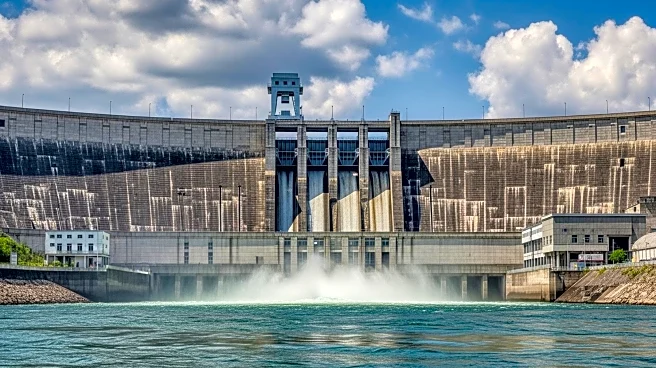What is the story about?
What's Happening?
Ethiopia is set to inaugurate the Grand Ethiopian Renaissance Dam (GERD), a massive hydroelectric project on the Blue Nile. The dam, which cost approximately $5 billion, has been a source of national pride for Ethiopia, uniting the country in its construction efforts. However, it has also sparked tensions with Egypt, which fears the dam will significantly reduce its water supply. The dam's reservoir is capable of storing 64 billion cubic meters of water, raising concerns in Egypt about potential water shortages and impacts on agriculture.
Why It's Important?
The GERD represents a significant geopolitical development in the Nile Basin, with potential implications for regional stability and water security. For Ethiopia, the dam is a critical infrastructure project that promises to meet domestic energy needs and boost economic growth through electricity exports. For Egypt, the dam poses a threat to its water resources, which are vital for its population and agriculture. The situation underscores the complex interplay between national development goals and transboundary water management.
What's Next?
Diplomatic efforts are likely to continue as Egypt seeks to secure agreements on water flow and dam operations. Ethiopia has expressed willingness to engage in talks, but tensions remain high. The international community may play a role in facilitating negotiations to prevent conflict and ensure equitable water sharing. The outcome of these discussions will be crucial in determining the future of water management in the region.
Beyond the Headlines
The GERD highlights broader issues of water governance and the challenges of balancing national interests with regional cooperation. The project also reflects Ethiopia's aspirations for economic development and energy independence, which could influence its geopolitical standing in Africa and beyond.

















